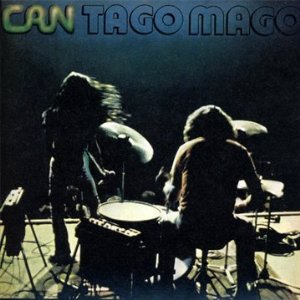In his seminal work on Kosmische, Krautrocksampler, Julian Cope writes that Can’s Tago Mago "sounds only like itself, like no-one before or after". 40 years on from the album’s initial release, it’s an observation that still holds true. There have been many bands who have attempted to recreate the heady, woozy, dark whirl of rhythms invoked on Tago Mago – from Public Image Limited to The Horrors – yet none of them have ever managed to truly capture the combination of the sinister and the sublime that have made it such a modern classic.
I discovered Tago Mago in 2002 at a friend’s house party, when I heard the strains of ‘Mushroom’ emanating in waves through the miasma of marijuana smoke and stale beer fumes. I was 19, just about to enter my second year of University, and had a spent a year in a tiny room in Camden wearing a duffle coat and listening to weedy, poorly-recorded C86 records on an old Dansette I’d purchased with my student loan. To say that it came as a bit of a revelation to my cloth ears would be an understatement.
There is this brilliant, creeping sense of unease that permeates ‘Mushroom’, from Damo Suzuki’s overwraught vocals to Jaki Liebezeit’s unrelenting, driving beat (a drumbeat which, over the years, I have played to many people – usually while drunk – demanding that they listen to it, just listen to it). The next day, I went into a record shop, bought the album on vinyl and played it over and over again, drinking in each of the rhythms and cursing the fact that my larger than average chest size meant that I’d never be able to become a drummer. To drum like Jaki would have meant investing in a bra that was more a minor feat of engineering that a piece of underwear.
It’s not just the music that makes Tago Mago so exciting as much as who Can were when they recorded it; a bunch of experimental West German hippies who delighted in the strange. The album was recorded in Schloss Nörvenich, a castle near Cologne owned by an eccentric art collector. Can spent a year living and recording there, and would spend their days playing long, disorganised jams (more streams of musical consciousness than actual songs) that their bassist, Holger Czukay, would then splice into songs.
It’s this recording process that has provided Tago Mago with its signature sound – long, uninterrupted series of rhythms, all punctuated with tape-loops, analogue synths, and primitive drum machines, providing it with an intensely stoned, woozy feel. Even the more ‘difficult’ tracks on Tago Mago, such as the echoed drone of ‘Aumgm’ (which, to modern ears, sounds like a precursor to some of the material later recorded by bands like Sunn 0))) and Boris) and the Hari Krishna-esque ‘Peking O’ show a band who thrilled in experimentation and playing with the limits of noise and technology.
Tago Mago shows Can at the height of their powers. Whilst their sound became more polished and poppy as they progressed through the 1970s (even earning them a minor UK chart hit with 1976’s ‘I Want More’), it still remains arguably their finest work. Over the years, it has become an album I’ve carted around with me everywhere I go – and have been forced to replace numerous times after lending it to ex-partners and leaving copies of it at house parties. I’ve yet to find another album that makes me wish I could turn back time and live in its world – in this case jamming with four German blokes for long days in a castle. And I’ve yet to find another album which contains drum patterns that make my bones shiver in delight. When it comes to Kosmische classics, this is an essential. If you don’t have this in your record collection, you’re doing yourself a massive disservice.


